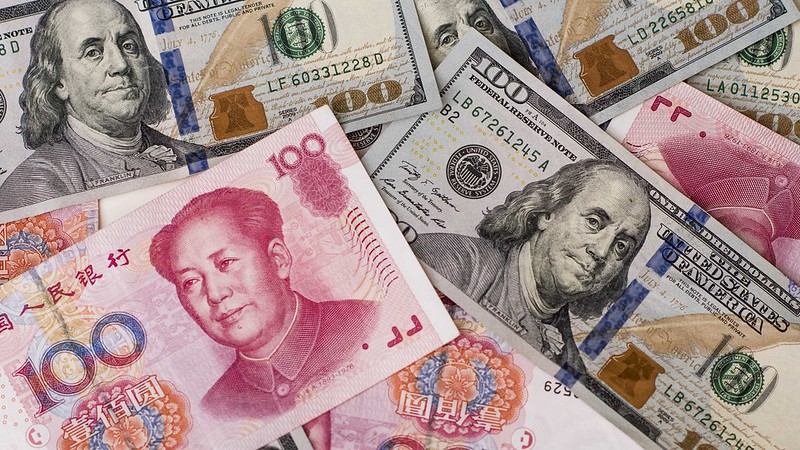It’s been a busy time for those speculating about Xi Jinping during a summer of economic angst in China. Yet, as the days start to close in again, the economy at least looks as though it may be stabilising temporarily as monetary stimulus and easier regulations for property developers and homeowners take effect. In international relations, however, an opaque and essentially closed political system has elevated uncertainty about Xi’s position, and his intentions as far as China’s role in the global system is concerned.
Consider that in June — a little over 3 months after he announced his cabinet at the National People’s Congress — Xi’s hand-picked and fast-tracked Foreign Minister Qin Gang went missing. Around the same time, the 2 top commanders of the elite PLA Army Rocket Force were acknowledged to have disappeared. In August, he failed to make a scheduled speech at the BRICS summit in Johannesburg. In September, he did not attend a G20 Summit in India for the first time, and in the last week or so, it’s been noted that Li Shangfu, whom Xi selected in March as his Defence Minister, has also vanished.
Whatever the domestic developments imply, the juxtaposition of Xi’s trip to the BRICS summit and his decision not to go to the G20 leads to the suggestion that he thinks the former has significance in global affairs now that the latter lacks. It is certainly a more ‘friendly’ forum for Xi’s China. Remember that Xi sees the current state of international relations as a historic opportunity to re-frame the global system of governance in the interests of itself, and of those states that choose to align with it. In a perverse way, the United States also recognises that China is the only country with the economic, commercial, political and military means to actually do that. The two major powers are therefore at loggerheads over the principles and the rules that are necessary to govern the behaviour and responsibilities of sovereign nations as these apply, for example to national, maritime, economic and food security, or to global development and health, or AI and climate change.
Xi’s governance agenda
To this end, China has proclaimed its own Weltanschauung – the Global Security, Global Development, and Global Civilisation Initiatives – designed to rally other nations into its orbit, and to undermine the alliance system that the United States and other liberal-leaning democracies have established in past decades. To celebrate the 10th anniversary of Xi’s personalised and formal launch of the Belt and Road Initiative, and the proposal to ‘build a community with a shared future for mankind’, the Ministry of Foreign Affairs recently issued a lengthy ‘Proposal of the People’s Republic of China on Reform and Development of Global Governance’.
The ‘shared future for mankind’ is really code for a China-dominated world order, and the document, itself, is repetitive and full of typical CCP rhetoric and platitude. It is nevertheless worth reading so as to understand the thought that has gone into China’s planning for global governance practices, in which BRICS could potentially be an alternative entity.
The security content includes references in general to sovereign and territorial integrity and nuclear security, and to Ukraine, the Korean Peninsula, the Middle East and North Africa, and African industrialisation in particular.
The development content spans economic development and globalisation, food security, and low carbon systems and development. The civilisation content includes important references to human rights, as China sees this sensitive topic, along with calls for cultural and learning exchange and development, and values.
There is a fourth area of governance that covers new frontiers of science and technology, including AI, cyberspace, biosecurity and oceans, and a concluding section, which calls for a stronger core role for the United Nations and other international bodies but, one would say, ‘with Chinese characteristics’. It proposes, for example, giving developing countries, especially in Africa, a bigger voice, and abandoning the institutional bias in favour of more developed nations, one of which, we might note ironically, China is intent on becoming between 2035-2049.
A snub to India
China’s governance agenda features prominently in any more parochial speculation about why in the summer of 2023 XI went to Johannesburg but not to New Delhi. It might have been for health reasons, or it could have been to give Premier Li Qiang a platform, now that this position holder, unlike his predecessor, is one of Xi’s men. Nevertheless, the most likely explanation is that it was a snub to Prime Minister Modi and to India.
China views India’s aspirations to speak for Global South countries, for example regarding development issues and multilateral debt negotiations, with suspicion, not least because this is probably what the US would like India to do too, Indeed, China resents India’s participation in the Quadrilateral Alliance — a security grouping comprising also the US, Japan and Australia — and other initiatives that have drawn India and the US closer together. India and China have disputed borders in Arunachal Pradesh in the north-east of India and in Kashmir. There has also been rising commercial tension between the 2 countries since India dropped out of negotiations in 2019 to join the China-dominated Regional Comprehensive Economic Partnership free trade group. These frictions include recent trends for multinational firms to diversify supply chains by setting up in India, and India’s banning of hundreds of Chinese apps. A think tank close to China’s Ministry of State Security is reported to have accused India of ‘increasing disharmony and geopolitical competition’.
If snubbing India was the proximate reason for missing the G20 though, the deeper underlying issue was almost certainly a reflection of China’s ambitious plans to re-frame global governance. Xi is surely more comfortable with China’s status and position in the presence of the now-expanding BRICS group of countries than with a G20, in which the US, G7 and other liberal leaning democracies still hold some considerable governance sway.
BRICS is a political entity
The BRICS summit was remarkable mostly for its extension of membership to countries in 3 continents: Egypt and Ethiopia, Saudi Arabia, Iran and the UAE, and Argentina. A score or more of other countries have expressed an interest in joining, and there has been much, often self-serving, speculation that the BRICS+ might become an increasingly potent force in the global governance system, and a structure that would propagate economic power that would diminish the G7, and financial power that might result in the displacement of the US dollar in the world monetary system.
For the most part, though, few, if any, of these claims make sense or have substance. The BRICS comprise a disparate group of countries, even more so as they expand. They span a huge range of economic development, and income per head, have structural dissimilar economic structures, and fundamentally different economic and commercial needs. What they do have in common, is that they are, mostly, opposed to the US or Western-style governance system in the world order and have a practical or political aversion to the US dollar, and to the financial sanctions that American financial dominance allows Washington to apply.
A more serious BRICS group might, for example, have invited weightier emerging countries, formerly known, when acronyms were the rage, as MINT — Mexico, Indonesia, Nigeria and Turkey. Yet it is hard to see these countries being invited, or joining. Possibly Indonesia, one day, but even then.
There shouldn’t be any doubt though that BRICS is essentially about China, which accounts overwhelmingly for the BRICS share of world population, GDP and trade, and is the only country to have lifted materially its share of world GDP in the last 20-25 years. The idea that the BRICS could introduce a new currency or use the RMB as a vehicle to elbow aside the US dollar is risible. BRICS could not look less like the type of optimal currency area in which a common currency could flourish as markets and regulations became integrated, and the infrastructure surrounding the yuan could not be more different and restrictive, compared to the US dollar or the Euro.
BRICS countries have discussed the theoretical proposition that they might invoice each another’s trade in yuan or a common currency, but this is mostly political posturing. What matters is not the currency in which invoices are paid for exports and imports, but the one in which balances accumulate as a result of trade. This requires a dominant country or countries to have deep and broad capital markets, trust, the rule of law, a freely convertible currency and pooled reserves. It certainly is not China, and the rest disqualify themselves for various reasons. Ultimately, they all need US dollars and access to US dollar capital markets.
Conclusion
China’s international relations objective in the 2020s is to be recognised by the world’s emerging and developing countries as leading the charge to a new global governance system, framed by China but in which access to Chinese economic and commercial largesse is the quid pro quo for support for China’s global narratives and goals. The simplest way it can do this is through organisational structures that it has created or founded or in which it is the dominant player. In Asia, Xi has the Shanghai Cooperation Organisation and the Regional Comprehensive Economic Partnership, while more globally he has the BRICS.
Yet, this does not mean Xi’s China will boycott or not show up at more conventional global gatherings such as the UN and its agencies, the WTO, IMF, World Bank and the G20. On the contrary: at the UN, China has chalked up impressive political loyalty from several developing countries, many of which also happen to be highly indebted to it through Belt and Road lending programmes. It probably does mean, though, that Xi’s personal involvement and attendance will be more à la carte, depending on the host and the agenda.
The major contradiction in China’s strategy to re-frame global governance lies in its championing of the concept of ‘true multilateralism’ in which all nations are equal. For Beijing, this is the opposite of the American or Western version of multilateralism, which it sees as a sop to US hegemony, with a few other nations as its allies.
Yet China, for all its protestations that it will remain a developing country — and well it might — has no intention of doing so. It wants to be bigger, wealthier and more controlling. Its view about equal nations does not extend to Japan or India or many other nations on which it looks down or views with hostility or suspicion. Its advocacy of true multilateralism for the Global South, or for the BRICS, is prone to stumble at the first hurdle if and when countries take a stance or position with which Beijing strongly disagrees, as a growing number of countries are finding out.
India is not alone, and an expanding BRICS will have even less glue than an already unwieldy G20.
This article gives the views of the author, and not the position of the China Foresight Forum, LSE IDEAS, nor The London School of Economics and Political Science.
The image, “Many different bright cargo containers on asphalt“ by Kelly via Pexels is free to use under the Pexels licence.



